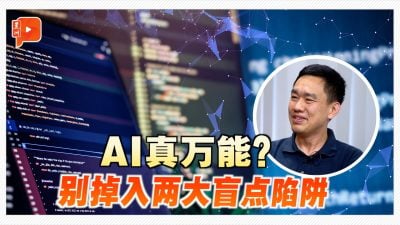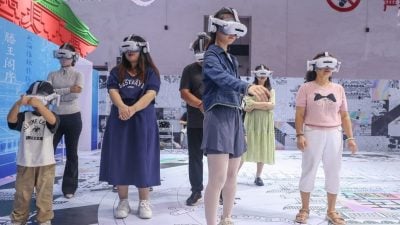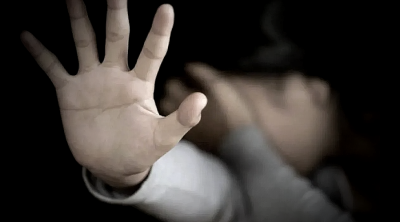
I really love the song “You Are My Eyes” by Taiwanese blind singer and songwriter Ricky Hsiao, especially a stanza that resonates with people who have remained sober in a world overwhelmed by the cyberspace. Up till this point I find myself starting to unwittingly hum:
“The black before me is not black
What is the white that you are talking about?
The sky blue that people say
Is the blue sky that lies behind the white clouds in my memory.
I gaze into your face
All I see is nothingness.
Could it be that God has put a veil in front of my eyes
And forget to lift it up?”
In the age of information overload where truths and lies are becoming indistinguishable, where public consensus is increasingly distorted by new media platforms and AI-manipulated algorithms, the above stanza aptly reflects the freefall of fundamental human judgment and a person’s observational capacity.
Many get so addicted to hitting the “like” button without considering or exploring the authenticity of a piece of information fed to them. This invariably helps boost the many scam syndicates around.
As if that’s not enough, many who hit the “like” button wholeheartedly believe in those lies, and end up being victimized by fraudsters.
Of late, we have seen a spike in Facebook advertisements in the guise of conventional media such as Sin Chew Daily, Nanyang Siang Pau, China Press, Guang Ming Daily, Oriental Daily News and Kwong Wah Yit Poh, claiming to offer get-rich-quick investment courses or schemes in conjunction with their anniversaries, and the like.
Upon checking, I was shocked to find many close friends around me among those giving their big thumbs-up. I am pretty sure they have been made to believe that these are the official sites of orthodox media companies, hence unsuspectingly hit the “like” button to show their support.
Some are not just the average people in the street, but people with respectable social status, or are highly educated. Unfortunately, they unknowingly make themselves accomplices of scam syndicates by helping spread the lies.
I have received a good number of short-message enquiries: “Is this real?” Others have kindly reminded us to remove the misleading messages lest more people get swindled.
As a matter of fact, there is nothing much we can actually do, because social media giants like Facebook with extremely powerful AI capabilities are in essence evasive about their social obligations, profitability being their sole and ultimate objective.
Even if they have the filter tools, they will prefer to just do nothing!
Conventional media like us who heavily rely on Facebook to help disseminate news often find ourselves helplessly sanctioned by Facebook.
The platform absolutely has superior AI filters to suspend a media account on violation of community guidelines, but irresponsibly turn a deaf ear on a flood of scammer accounts!
In the wake of an inundation of fake news on the Internet, there are at least sound-minded readers or friends who will take the trouble to call us for verification, but we have no way to tell how many who completely believe in the lies.
The stanza from Ricky Hsiao’s “You Are My Eyes” aptly portrays the chaos we see in the cyberworld today, especially among those who can hardly tell between the right and wrong.
This song was originally composed to illustrate the dark world of the visually challenged, but it also fits perfectly into the phenomenon of today’s cyberworld. It is like a mirror: although many “can see,” they are living in the world blindfolded!
Scam syndicates have managed to flourish thanks to the gradual degradation of human judgmental faculty. At the same time, irresponsible politicians and political extremists have banked on this to misguide the uninitiated with all kinds of conspiracy theories and lies.
Following the surge of AI, the sheer amount of misinformation is way beyond our imagination. Anyone could fall victim to the “misinformation virus” at the slightest oversight.
Following the surge of AI, the sheer amount of misinformation is way beyond our imagination. Anyone could fall victim to the “misinformation virus” at the slightest oversight.
Yuval Noah Harari puts it bluntly in his book “Sapiens: A Brief History of Humankind”: Algorithms use hatred, greed and panic as a means to attract attention, inspire users to forward messages crazily out of anger, and spread slander, fake news and false information like a virus. Therefore, any conspiracy theory has a market, because human nature tends to believe in rumors.
Moreover, many people tend to shy away from reading newspapers, rendering themselves incapable of discerning the authenticity of a piece of news. Today, many prefer to read only short articles or go after entertaining but completely useless short videos.
To me, the effects of reading physical newspapers or e-papers are downright different from browsing news on the Internet. While the former allows one to grasp the current situation and helps nurture one’s ability to think, the latter numbs one’s judgmental capacity, producing the illusion that “I know it all.”
News delivered on mobile devices and the Internet have been a product of algorithms in accordance with the user’s personal liking or preferences—repetitive, low-value and sporadic. In the face of an over-abundance of information, modern-day people are gradually surrendering their patience and ability for deep reading and prudent thinking.
Our concentration is being gradually eroded by the sudden influx of information. In the meantime, following the rise of AI technologies, humans begin to transfer the task of prudent thinking to the machine.
As a consequence, AI gets smarter by the day, just as human brains slowly degenerate outside our knowledge! This spells a humongous crisis for the survival of the human race.
AI technologies that we have today are still in a stage of infancy, but they are evolving at breakneck speeds, their powers and effects far outweighing the wildest human imagination.
Modern-day people have no choice but to embrace technology in order to stay relevant in our rapidly evolving world. That said, we must stay constantly alert.
We need to learn to harness and understand AI in order to turn it into a helpful tool instead of reducing ourselves to servitude with it.
To be honest, the pace with which technology advances today catches everyone off-guard, but neither the users nor the governments are prepared enough to tackle the ensuing challenges.
Thanks to the rapid spread of AI and automation, it is foreseeable that unemployment will rise, as newly created jobs are outnumbered by redundancies, potentially triggering serious social implications.
This is a crisis of global proportions that requires serious attention from all.
A month ago, I hosted web and new media founder Associate Professor Yang Ji and his delegation from Communication University of Zhejiang, China, and we had very meaningful discussions about the above social phenomenon.
He said: While our world is a dazzle of colors, we hardly can tell between the black and white; we are pampered with an endless stream of information, but allow ourselves to be incarcerated by it; digital communication is getting incredibly convenient, but we sadly live in a sorry state of solitude!
His words perfectly depict the malady of our wired world today, as well as the grief befalling humankind.
ADVERTISEMENT
ADVERTISEMENT








































